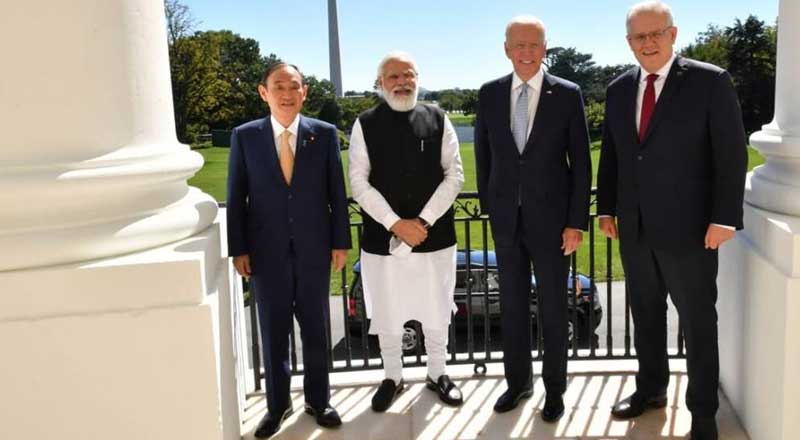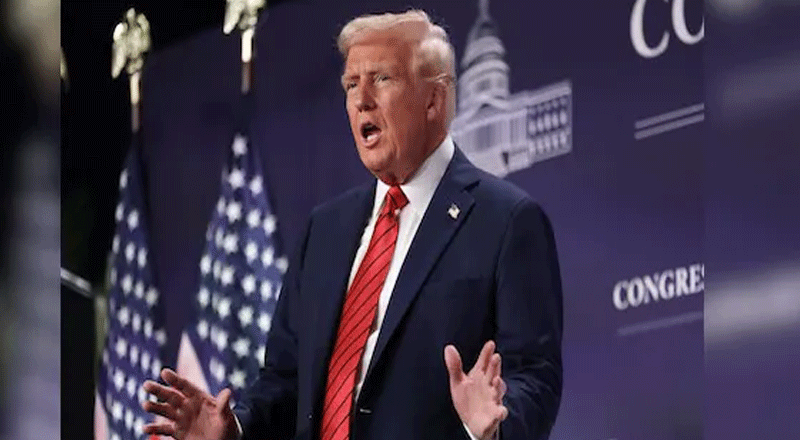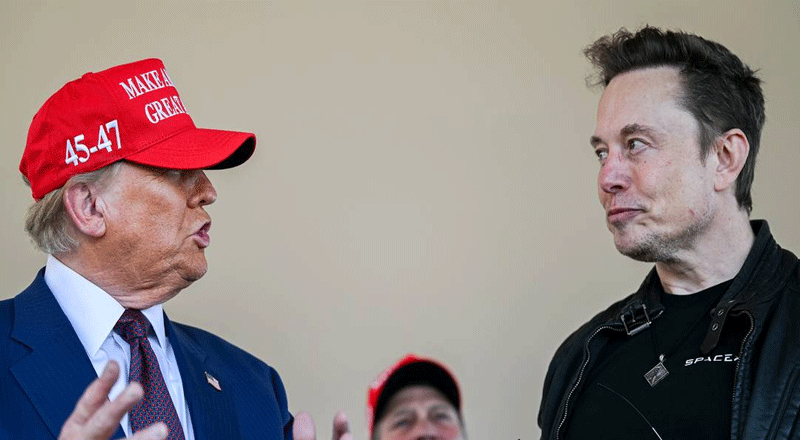On September 24, President Biden hosted Prime Minister Scott Morrison of Australia, Prime Minister Narendra Modi of India, and Prime Minister Yoshihide Suga of Japan at the White House for the first-ever in-person Leaders’ Summit of the Quad. The leaders have put forth ambitious initiatives that deepen our ties and advance practical cooperation on 21st-century challenges: ending the COVID-19 pandemic, including by increasing production and access to safe and effective vaccines; promoting high-standards infrastructure; combatting the climate crisis; partnering on emerging technologies, space, and cybersecurity; and cultivating next-generation talent in all of our countries.
COVID and Global Health
Quad leaders recognize that the most immediate threat to lives and livelihoods in our four countries and the world is the COVID-19 pandemic. And so in March, Quad leaders launched the Quad Vaccine Partnership, to help enhance equitable access to safe and effective vaccines in the Indo-Pacific and the world. Since March, the Quad has taken bold actions to expand safe and effective COVID-19 vaccine manufacturing capacity, donated vaccines from our own supply, and worked together to assist the Indo-Pacific in responding to the pandemic. The Quad Vaccine Experts Group remains the heart of our cooperation, meeting regularly to brief on the latest pandemic trends and coordinate our collective COVID-19 response across the Indo-Pacific, including by piloting the Quad Partnership COVID-19 Dashboard. We welcome President Biden’s September 22 COVID-19 Summit, and acknowledge that our work continues. The Quad will:
Help Vaccinate the World: As Quad countries, we have pledged to donate more than 1.2 billion vaccine doses globally, in addition to the doses we have financed through COVAX. To date we have collectively delivered nearly 79 million safe and effective vaccine doses to the Indo-Pacific region. Our Vaccine Partnership remains on track to expand manufacturing at Biological E Ltd. this fall, so that it can produce at least 1 billion doses of COVID-19 vaccines by the end of 2022. As a first step towards that new capacity, the leaders will announce bold actions that will immediately help the Indo-Pacific in its quest to end the pandemic. We recognize the importance of open and secure supply chains for vaccine production. The Quad welcomed India’s announcement to resume exports of safe and effective COVID-19 vaccines, including to COVAX, beginning in October 2021. Through $3.3 billion in the COVID-19 Crisis Response Emergency Support Loan program, Japan will continue to help regional countries to procure safe, effective, and quality-assured vaccines. Australia will deliver $212 million in grant aid to purchase vaccines for Southeast Asia and the Pacific. In addition, Australia will allocate $219 million to support last-mile vaccine rollouts and lead in coordinating the Quad’s last-mile delivery efforts in those regions. Quad member countries will coordinate with the ASEAN Secretariat, the COVAX Facility, and other relevant organizations. We will continue to strengthen and support the life-saving work of international organizations and partnerships, including the WHO, COVAX, Gavi, CEPI, and UNICEF; and national governments. At the same time, the leaders are fully committed to strengthening vaccine confidence and trust. To that end, Quad countries will host an event at the 75th World Health Assembly (WHA) dedicated to combatting hesitancy.
Save Lives Now: Together as the Quad, we are committed to taking further action in the Indo-Pacific to save lives now. Japan, through Japan Bank for International Cooperation, will work with India to enhance key investments of approximately $100 million in the healthcare sector related to COVID-19, including vaccine and treatment drugs. We will utilize the Quad Vaccine Experts Group and convene as needed to urgently consult in relation to our emergency assistance.
Build Back Better Health Security: The Quad commits to better preparing our countries and the world for the next pandemic. We will continue to build coordination in our broader COVID-19 response and health-security efforts in the Indo-Pacific, and we will jointly build and conduct at least one pandemic preparedness tabletop or exercise in 2022. We will also further strengthen our science and technology cooperation in support of the 100-Day Mission—to have safe and effective vaccines, therapeutics, and diagnostics available within 100 days—now and into the future. This includes collaboration on current and future clinical trials, such as launching additional sites for the international Accelerating COVID-19 Therapeutic Interventions and Vaccines (ACTIV) trials, which can expedite investigation of promising new vaccines and therapeutics, while at the same time supporting countries in the region to improve their capacity to undertake scientifically sound clinical research. We will support the call for a “global pandemic radar” and will improve our viral genomic surveillance, including by working together to strengthen and expand the WHO Global Influenza Surveillance and Response System (GISRS).
Infrastructure
Building on the G7’s announcement of Build Back Better World (B3W)—an infrastructure partnership focused on digital connectivity, climate, health and health security, and gender equality infrastructure—the Quad will rally expertise, capacity, and influence to strengthen ongoing infrastructure initiatives in the region and identify new opportunities to meet the needs there. The Quad will:
Launch the Quad Infrastructure Coordination Group: Building on existing leadership from Quad partners on high-standards infrastructure, a senior Quad infrastructure coordination group will meet regularly to share assessments of regional infrastructure needs and coordinate respective approaches to deliver transparent, high-standards infrastructure. The group will also coordinate technical assistance and capacity-building efforts, including with regional partners, to ensure our efforts are mutually reinforcing and complementary in meeting the significant infrastructure demand in the Indo-Pacific.
Lead on High-Standards Infrastructure: Quad partners are leaders in building quality infrastructure in the Indo-Pacific region. Our complementary approaches leverage both public and private resources to achieve maximum impact. Since 2015, Quad partners have provided more than $48 billion in official finance for infrastructure in the region. This represents thousands of projects, including capacity-building, across more than 30 countries in support of rural development, health infrastructure, water supply and sanitation, renewable power generation (e.g., wind, solar, and hydro), telecommunications, road transportation, and more. Our infrastructure partnership will amplify these contributions and further catalyze private-sector investment in the region.
Climate
Quad countries share serious concern with the August Intergovernmental Panel on Climate Change’s report findings on the latest climate science, which has significant implications for climate action. To address the climate crisis with the urgency it demands, Quad countries will focus their efforts on the themes of climate ambition, including working on 2030 targets for national emissions and renewable energy, clean-energy innovation and deployment, as well as adaptation, resilience, and preparedness. Quad countries commit to pursue enhanced actions in the 2020s to meet anticipated energy demand and decarbonize at pace and scale to keep our climate goals within reach in the Indo-Pacific. Additional efforts include working together on methane abatement in the natural-gas sector and on establishing responsible and resilient clean-energy supply chains. The Quad will:
Form a Green-Shipping Network: Quad countries represent major maritime shipping hubs with some of the largest ports in the world. As a result, Quad countries are uniquely situated to deploy green-port infrastructure and clean-bunkering fuels at scale. Quad partners will organize their work by launching a Quad Shipping Taskforce and will invite leading ports, including Los Angeles, Mumbai Port Trust, Sydney (Botany), and Yokohama, to form a network dedicated to greening and decarbonizing the shipping value chain. The Quad Shipping Task Force will organize its work around several lines of efforts and aims to establish two to three Quad low-emission or zero-emission shipping corridors by 2030.
Establish a Clean-Hydrogen Partnership: The Quad will announce a clean-hydrogen partnership to strengthen and reduce costs across all elements of the clean-hydrogen value chain, leveraging existing bilateral and multilateral hydrogen initiatives in other fora. This includes technology development and efficiently scaling up the production of clean hydrogen (hydrogen produced from renewable energy, fossil fuels with carbon capture and sequestration, and nuclear for those who choose to deploy it), identification and development of delivery infrastructure to safely and efficiently transport, store, and distribute clean hydrogen for end-use applications, and stimulating market demand to accelerate trade in clean hydrogen in the Indo-Pacific region.
Enhance Climate Adaptation, Resilience, and Preparedness: Quad countries commit to increasing the Indo-Pacific region’s resilience to climate change by improving critical climate information-sharing and disaster-resilient infrastructure. The Quad countries will convene a Climate & Information Services Task Force and build a new technical facility through the Coalition for Disaster Resilient Infrastructure that will provide technical assistance in small island developing states.
People-to-People Exchange and Education
The students of today will be the leaders, innovators, and pioneers of tomorrow. To build ties among the next generation of scientists and technologists, Quad partners are proud to announce the Quad Fellowship: a first-of-its-kind scholarship program, operated and administered by a philanthropic initiative and in consultation with a non-governmental task force comprised of leaders from each Quad country. This program will bring together exceptional American, Japanese, Australian, and Indian masters and doctoral students in science, technology, engineering, and mathematics to study in the United States. This new fellowship will develop a network of science and technology experts committed to advancing innovation and collaboration in the private, public, and academic sectors, in their own nations and among Quad countries. The program will build a foundational understanding among Quad Scholars of one another’s societies and cultures through cohort-wide trips to each Quad country and robust programming with each country’s top scientists, technologists, and politicians. The Quad will:
Launch the Quad Fellowship: The Fellowship will sponsor 100 students per year—25 from each Quad country—to pursue masters and doctoral degrees at leading STEM graduate universities in the United States. It will serve as one of the world’s leading graduate fellowships; but uniquely, the Quad Fellowship will focus on STEM and bring together the top minds of Australia, India, Japan, and the United States. Schmidt Futures, a philanthropic initiative, will operate and administer the fellowship program in consultation with a non-governmental taskforce, comprised of academic, foreign policy, and private sector leaders from each Quad country. Founding sponsors of the fellowship program include Accenture, Blackstone, Boeing, Google, Mastercard, and Western Digital, and the program welcomes additional sponsors interested in supporting the Fellowship.
Critical and Emerging Technologies
Quad leaders are committed to working together to foster an open, accessible, and secure technology ecosystem. Since establishing a new critical and emerging technologies working group in March, we have organized our work around four efforts: technical standards, 5G diversification and deployment, horizon-scanning, and technology supply chains. Today, the Quad leaders launch a statement of principles on technology, along with new efforts that together will advance critical and emerging technologies shaped by our shared democratic values and respect for universal human rights. The Quad will:
Publish a Quad Statement of Principles: After months of collaboration, the Quad will launch a statement of principles on technology design, development, governance, and use that we hope will guide not only the region but the world towards responsible, open, high-standards innovation.
Establish Technical Standards Contact Groups: The Quad will establish contact groups on Advanced Communications and Artificial Intelligence focusing on standards-development activities as well as foundational pre-standardization research.
Launch a Semiconductor Supply Chain Initiative: Quad partners will launch a joint initiative to map capacity, identify vulnerabilities, and bolster supply-chain security for semiconductors and their vital components. This initiative will help ensure Quad partners support a diverse and competitive market that produces the secure critical technologies essential for digital economies globally.
Support 5G Deployment and Diversification: To support the critical role of Quad governments in fostering and promoting a diverse, resilient, and secure telecommunications ecosystem, the Quad has launched a Track 1.5 industry dialogue on Open RAN deployment and adoption, coordinated by the Open RAN Policy Coalition. Quad partners will jointly facilitate enabling environments for 5G diversification, including with efforts related to testing and test facilities.
Monitor Biotechnology Scanning: The Quad will monitor trends in critical and emerging technologies, starting with advanced biotechnologies, including synthetic biology, genome sequencing, and biomanufacturing. In the process, we will identify related opportunities for cooperation.
Cybersecurity
Building on longstanding collaboration among our four countries on cybersecurity, the Quad will launch new efforts to bolster critical-infrastructure resilience against cyber threats by bringing together the expertise of our nations to drive domestic and international best practices. The Quad will:
Launch a Quad Senior Cyber Group: Leader-level experts will meet regularly to advance work between government and industry on driving continuous improvements in areas including adoption and implementation of shared cyber standards; development of secure software; building workforce and talent; and promoting the scalability and cybersecurity of secure and trustworthy digital infrastructure.
Space
Quad countries are among the world’s scientific leaders, including in space. Today, the Quad will begin space cooperation for the first time with a new working group. In particular, our partnership will exchange satellite data, focused on monitoring and adapting to climate change, disaster preparedness, and responding to challenges in shared domains. The Quad will:
Share Satellite Data to Protect the Earth and its Waters: Our four countries will start discussions to exchange Earth observation satellite data and analysis on climate-change risks and the sustainable use of oceans and marine resources. Sharing this data will help Quad countries to better adapt to climate change and to build capacity in other Indo-Pacific states that are at grave climate risk, in coordination with the Quad Climate Working group.Enable Capacity-Building for Sustainable Development: The Quad countries will also enable capacity-building in space-related domains in other Indo-Pacific countries to manage risks and challenges. The Quad countries will work together to support, strengthen, and enhance space applications and technologies of mutual interest.





